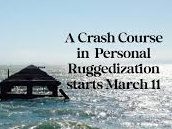by Ali Qassim in LAB…Mapuche leader Millaray Huichalaf defends the Pilmaiken River through legal challenges, international alliances, and the arts
The Strategic Foresight Book
by Ben Holt of IFRC Solferino Academy in The Strategic Foresight Book….Strategic foresight is a practical way to explore emerging issues and uncover new options for action. It helps us anticipate challenges, engage with uncertainty and sharpen our decision making. It is also a powerful way to connect with communities and imagine new possibilities.
Extreme wildfires have doubled in 2 decades, study finds
by Austyn Gaffney in The New York Times…In a changing climate, extreme wildfire events are becoming far more common and more intense, according to a new analysis.
With extreme heat, is the Earth getting too hot for humans to survive?
by The Conversation in Fast Company….https://www.fastcompany.com/91142194/extreme-heat-earth-global-warming-humans-climate-change
How ocean warming is warping the world
by David Wallace-Wells in The New York Times….The vastness is also growing — not just because of melting Arctic and Antarctic ice, which could raise global sea levels by several feet this century and many more in the millenniums to come, but also because of what is known as “thermal expansion.” Heat expands the volume of water too and to date is responsible for at least one-third of all sea-level rise.
The disruption nexus
by Roman Krznaric in aeon.com….Polycrisis. Metacrisis. Omnicrisis. Permacrisis. Call it what you like. We are immersed in an age of extreme turbulence and interconnected global threats. The system is starting to flicker – chronic droughts, melting glaciers, far-Right extremism, AI risk, bioweapons, rising food and energy prices, rampant viruses, cyberattacks.
The climate is the economy
by Nitish Pahwa on Slate.com…Intensifying hurricanes, floods, and heat waves are wreaking havoc across the country—and on all of our bank accounts.
Endowing the future
by Civic Square and Dark Matter Labs, Endowing the Future is a chapter in …..The Neighbourhood Public Square seeks to demonstrate regenerative civic infrastructure at the heart of Ladywood, Birmingham, co-building and democratising access to the spaces, tools and resources for a bold, imaginative, distributed transition, held in common with the neighbourhood.
Going sane in a crazy world
By Richard Heinberg, in Resilience.org….The consequences of our adoption of consumerist, growth-seeking industrialism will ultimately be a crash—hopefully only partial and temporary—of society and nature.
Governance Systems for a humanising society: What stops us from fixing the polycrisis?
Michael Lerner in conversation with Louis Klein (EUSG) and Karima Kadaoui (Tamkeen Community Foundation) Starting from the premise, advanced by the International Federation for Systems Research (IFSR) and the European School of Governance (EUSG), that at the core of...




